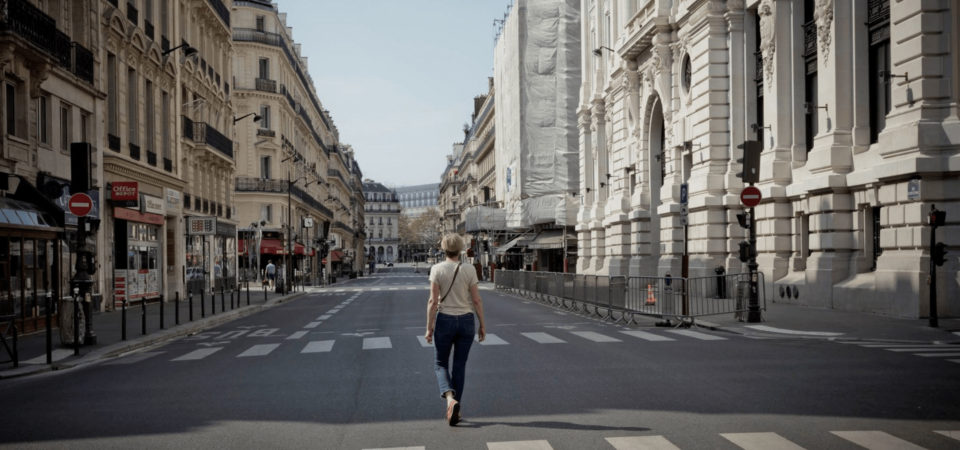In this text, the author recounts some perceptions and sensations lived during the walk around his home. His text comprises three movements. Beginning from the observation on the effects produced by the absence of a daily walking routine on his body, the walker smoothly slides to a second movement in which he compares himself to a fruit that is drying out and cracking. The transition from a spectator posture—in which he admits the difficulty of the current situation he is living in or the writing process in which he is engaged—to a scene in which he is depicted as a fruit is accomplished. The final movement opens for a sort of possible rebirth thanks to the walking practice and, apparently, a return to human agency. The verbalization of the process unveils a possible emergency. The need to continue to walk is approached as the condition for a possible rebirth of the author, like water is seen as a regenerating resource for the Earth in the context of the global warming. The analogy in the text introduces a holistic and global perspective. The micro detail of the walking practice and of the French health crisis is connected to the climate change emergency. The body as a metaphor of the world.
To take the time to walk and write about this experience could open new ways to perceive the world, our bodies, and the temporality of our daily practices. Walking and writing are in this way irreducibly intermeshed, as politics and art are. Walking is both the topic and the context of the narrative, and narrative is the symbolic space of the re-enactment of walking, an opportunity to make of our living experiences an aesthetic and a political resource. The nature of these narratives, as strongly dependent on lockdown context, reveals a paradox. If the lockdown represents some obvious social constraints on the circulation of citizens, speech practices can be approached as a possibility for re-subjectivation. It is in this sense that walking and writing are political and aesthetic. They are practices through which one can feel the emergence of a consciousness of a new state, of a new body, a desire to write and to share with a moving and in progress community. In the context of lockdown and the easing of lockdown, in which rallies and political gatherings are still forbidden, to write about what we experience, and to walk with texts on our backs—is to make of our bodies and our texts sites of political and artistic performance, a walk and a text of one’s own.

